Walking into La Raza Community Resource Center on a hot San Francisco summer day last year, we were immediately greeted by an extra layer of warmth: the enthusiastic welcome of La Raza’s staff and pantry volunteers. Nestled in the historic Mission district on Valencia Street, La Raza is a trusted one-stop shop for food and social services that’s been serving the Latinx community since 1979.
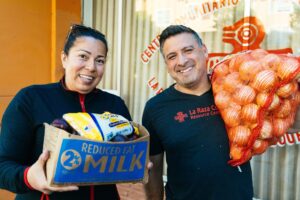
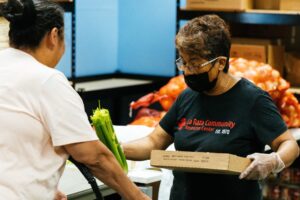
Collaborating With Community
In partnership with the Food Bank, La Raza holds a farmer’s market style food pantry for the community on Wednesdays, serving roughly 330 families each week. Volunteers worked in tandem, passing out leafy greens, onions, plums, and many other dry pantry items. Even in hot weather, it wasn’t enough to slow down their determination to meet the needs of their participants – all with smiles and kindness. Whatever neighbors are seeking assistance with – be it weekly groceries, diapers, or parenting classes – they know they’ll find answers, support, and a friendly face here. 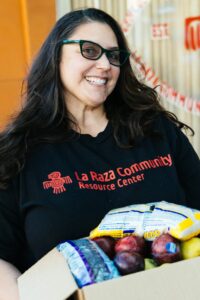
“It’s always word of mouth – ‘Come here!’ It’s a very trusted space, especially for newcomers,” said Zabrina Olivares, a case manager in La Raza’s Family Advocacy and Social Services department. Though she’s a newer staff member, Zabrina has witnessed first-hand how this legacy of trust with the community has cemented La Raza as such a crucial support system for neighbors in the Mission.
Trust as the Foundation for Success
La Raza’s immigration services are just one example of how trust and relationship-building create better outcomes for community members. In-house immigration attorneys can advocate for and walk with neighbors through their immigration journey, while case managers connect neighbors with other support services. This holistic approach makes a huge difference for neighbors like Carolina, a participant and pantry volunteer at La Raza.
“La Raza is one of the most complete community centers available. It has a lot of services that help with immigration, counseling/therapy for immigrants, and assistance with rent,” Carolina told us. After experiencing threats of violence to her family, Carolina left her home country of El Salvador with her two daughters. The services she found through La Raza provided a supportive launch pad while she found footing in her new home, San Francisco.
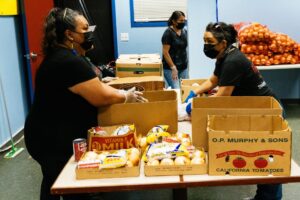
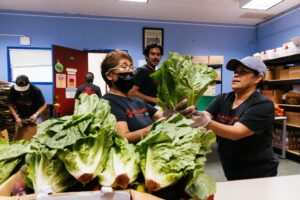
Barriers to Food Security
Creating food security for Latinx community members is a central tenet of La Raza’s work – and this has only become more challenging in recent years. “I’m witnessing that more people need food. During COVID, and especially after COVID, food got more expensive,” Zabrina shared. Our community is being squeezed on all sides by the steep cost of living, including childcare, gas, utilities and more. This fact is underscored by the Food Bank’s participant survey, which found that 83% of those surveyed report being worried about running out of food each week. Additionally, government support is declining,
including the slash in CalFresh benefits last year.
“Food stamp (CalFresh) funds have decreased, but even with that, many of our population aren’t eligible for food stamps,” Zabrina shared. With this in mind, La Raza supports other food access solutions for community members: “We are also an Emergency Food Box site, a partnership with the Food Bank, where participants call ‘211’ and can receive a box of food when the need is extra urgent.”
With a three-day supply of shelf stable food, these boxes are an important resource for people in crisis with no immediate way to access food. On average, the Food Bank supports La Raza with 20-30 Emergency Food Boxes per month. Folks can access this service once every twelve months, and while there aren’t any requirements, it’s helpful to call ahead for availability.
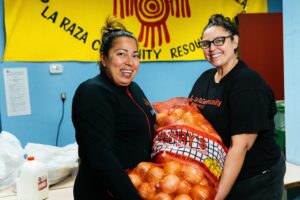
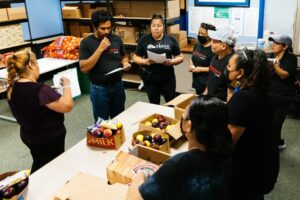
Towards Self-Sufficiency for the Latinx Community
While the Food Bank is squarely focused on ending hunger and advocating for solutions to the root causes of hunger, many of our partners – including La Raza – take a more holistic approach to supporting their community members.
Core to La Raza’s mission is empowering their neighbors with self-sufficiency and agency, many of whom migrated to this land for better opportunities. Empowerment can take many forms. One effort La Raza is focused on is advocating for policies like Immigrant Parent Voting. This law allows noncitizen parents to vote on measures that affect their children’s welfare in public school.
As case manager, Zabrina encourages parents to get involved: “This is affecting your child’s education and who you want and don’t want in there. I remind them that this is part of self-sufficiency, advocacy, and empowerment. This is your power, your vote, and to feel part of your community. And that’s something that we encourage a lot here – to be part of your community – be together.” It’s this sense of agency and power that informs all of La Raza’s work, and one that permeates the attitudes of volunteers, participants and staff alike.
Carmen Callejas, La Raza’s current Pantry Coordinator and a former La Raza participant, shared that her trust in this community is informed by her own story of reaching self-sufficiency: “I learned to respect the community, and especially that the work is for them. There is nothing better than that. Working with love and passion to help people out is invaluable.”




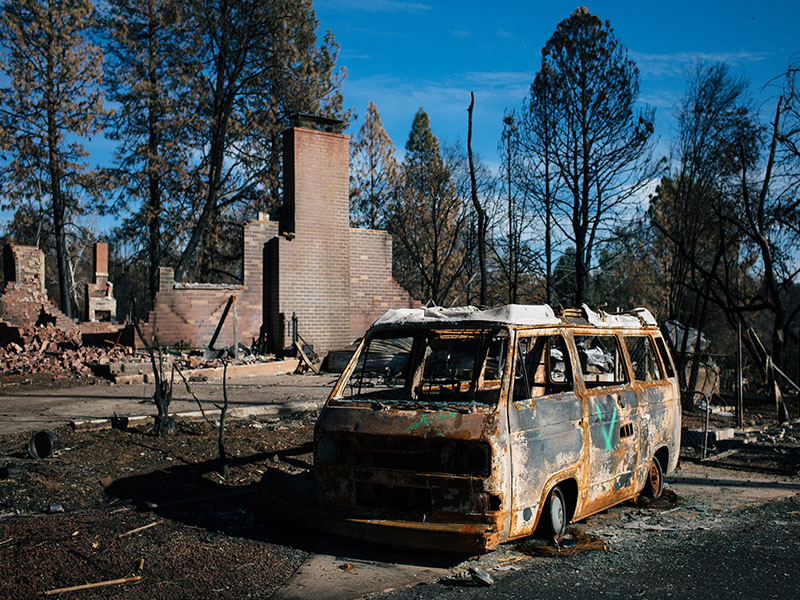 An hour later, fiery chunks of debris were pelting the couple’s home. When it was all over, they were left with nothing but their brick chimney and charred sludge and debris. “We lost fifty years of everything in that house,” Jean said. “It’s numbing.” The couple is now navigating insurance to begin rebuilding their house and their lives.
An hour later, fiery chunks of debris were pelting the couple’s home. When it was all over, they were left with nothing but their brick chimney and charred sludge and debris. “We lost fifty years of everything in that house,” Jean said. “It’s numbing.” The couple is now navigating insurance to begin rebuilding their house and their lives.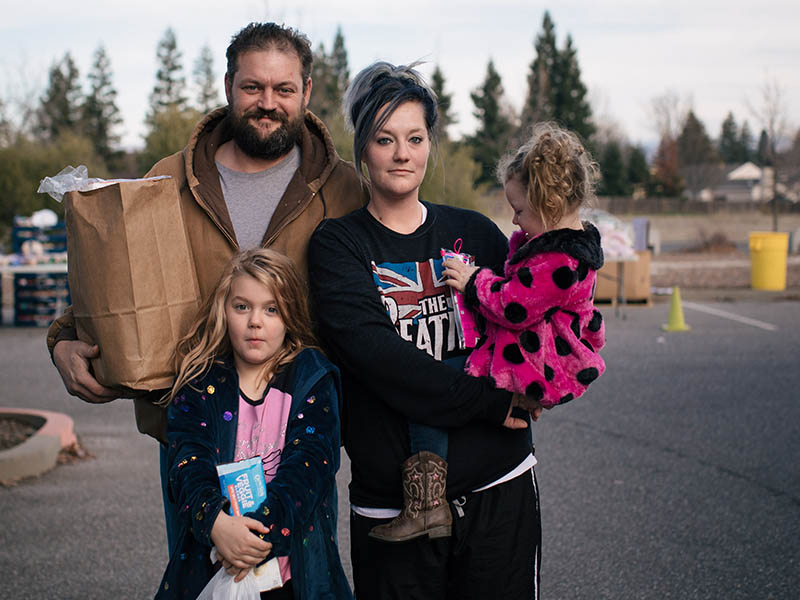
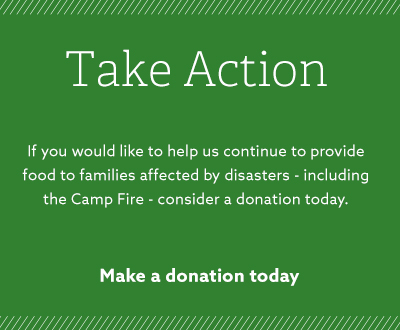
Share